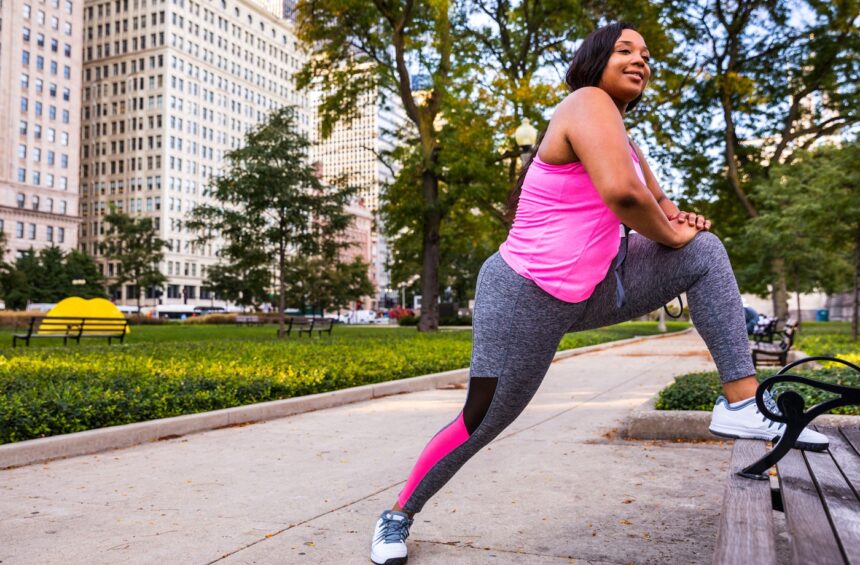Running is a fantastic form of exercise that offers numerous health benefits, from reducing the risk of Alzheimer’s disease to boosting mood and self-confidence. However, one common issue that many runners face is knee pain. This can be caused by a variety of factors, including improper technique, tight muscles, inadequate warm-up, and wearing the wrong shoes. The good news is that you don’t have to let knee pain derail your running routine.
Runner’s knee, also known as chondromalacia patella, is a common injury among runners that occurs when the cartilage under the kneecap is damaged. This cartilage serves as a natural shock absorber, and when it becomes damaged, it can lead to symptoms such as kneecap pain, swelling, and popping or grinding sensations. However, runner’s knee is a broad term that encompasses any knee pain experienced by runners, and it doesn’t always involve damaged cartilage. Instead, knee pain is your body’s way of signaling a need for change in your training, mobility, and readiness.
Identifying the exact cause of runner’s knee can be challenging, as it often indicates a broader issue with your overall readiness for running. Factors such as volume of training, stress levels, nutrition, and mobility can all contribute to knee pain. Tight muscles, tendons, and connective tissue can also play a role in causing knee pain, especially in runners with tight quads. When your body lacks mobility and range of motion, it sends signals to your brain that your knee may be at risk, resulting in pain.
In addition to tight muscles and poor mobility, other common causes of knee pain while running include a poor diet, inadequate footwear, and insufficient recovery time. To prevent knee pain, it’s essential to allow your body to rest and recover between runs, maintain a healthy diet, wear supportive shoes, and prioritize recovery methods such as massage and Epsom salt baths.
If you’re experiencing knee pain while running, it may be due to increasing your mileage too quickly or using poor running technique. To prevent knee pain, start gradually and seek guidance from a professional run coach or running app. Focus on maintaining proper running form, including keeping your hips aligned, head neutral, shoulders relaxed, chest open, and arms swinging correctly. Avoid overstriding and butt-kicking, as these can place unnecessary stress on your muscles and exacerbate knee pain.
By addressing the root causes of knee pain and making necessary adjustments to your training routine, you can continue to enjoy the many benefits of running without being sidelined by discomfort. Remember to listen to your body, prioritize proper technique and recovery, and seek professional guidance if needed to keep your knees healthy and pain-free while running. Running is a fantastic way to stay fit and healthy, but it can also take a toll on your knees if not done correctly. It’s important to pay attention to your form and take steps to prevent knee pain before it starts. Here are some tips to help you keep your knees healthy while running.
1. Practice Isometric exercises: Isometric exercises involve muscle contractions without movement. By mimicking the movements of running through isometric exercises, you can signal to your brain that those positions are safe, reducing the likelihood of pain signals firing in the future. Lunges and raised leg lunges are great exercises to try, focusing on breathing deep, flexing your glutes, and holding the position for several breaths.
2. Practice soft tissue mobilization (foam rolling): Tightness in your soft tissue, especially in your quads, can contribute to knee pain. Foam rolling can help release tension in these areas, improving your overall mobility and reducing the risk of knee pain.
3. Train with a running coach: Proper running technique is essential for preventing knee injuries. Working with a running coach can help you analyze your form and make adjustments to strengthen your running style, ultimately protecting your knees in the long run.
4. Invest in a good pair of running shoes and socks: Quality gear is essential for any physical activity, including running. Visit a running store for a gait analysis to find shoes that suit your natural running style and provide the support you need to protect your knees.
5. Keep a training diary: Tracking your running sessions can help you avoid overdoing it and prevent injuries. By balancing your running, training, and recovery days, you can ensure that you’re not pushing yourself too hard and risking knee pain.
6. Build your muscle strength: Strength training is crucial for protecting your body and improving your running performance. Focusing on single-leg and double-leg strength exercises can help build power and stability, reducing the risk of knee injuries.
By following these tips and taking care of your body both on and off the road, you can enjoy pain-free running and keep your knees healthy for years to come. Remember to listen to your body, seek medical attention if needed, and prioritize your overall well-being as you pursue your running goals. The world of technology is constantly evolving, with new advancements and innovations being introduced every day. One such innovation that has gained immense popularity in recent years is artificial intelligence (AI). AI has revolutionized the way we interact with technology, making it more intelligent and capable of performing tasks that were once thought to be only possible for humans.
One of the key areas where AI has made a significant impact is in the field of healthcare. From diagnosing diseases to developing personalized treatment plans, AI has the potential to revolutionize the way healthcare is delivered. AI algorithms are able to analyze vast amounts of data and identify patterns that may not be readily apparent to human eyes. This can help doctors make more accurate diagnoses and develop more effective treatment plans for their patients.
In addition to diagnosing and treating diseases, AI is also being used to improve the efficiency of healthcare systems. For example, AI-powered chatbots are being used to provide patients with information about their health conditions and answer their questions. This can help reduce the burden on healthcare workers and improve the overall patient experience.
AI is also being used to develop new drugs and treatment options. By analyzing large datasets of genetic information and clinical trial data, AI algorithms can identify potential drug targets and develop new treatments for diseases. This can accelerate the drug discovery process and help bring new treatments to market faster.
Despite the many benefits of AI in healthcare, there are also challenges that need to be addressed. One of the main concerns is the potential for bias in AI algorithms. If the data used to train AI algorithms is biased, it can lead to inaccurate diagnoses and treatment recommendations. It is important for developers to ensure that their algorithms are trained on diverse and representative datasets to minimize bias.
Another challenge is the issue of data privacy and security. With the vast amounts of sensitive patient data being used to train AI algorithms, there is a risk of this data being misused or stolen. It is essential for healthcare organizations to implement robust security measures to protect patient data and ensure patient confidentiality.
In conclusion, AI has the potential to revolutionize healthcare by improving diagnosis, treatment, and efficiency. However, it is important for developers and healthcare organizations to address challenges such as bias and data security to ensure that AI is used responsibly and ethically in healthcare settings. With proper oversight and regulation, AI has the potential to transform healthcare and improve outcomes for patients around the world.







